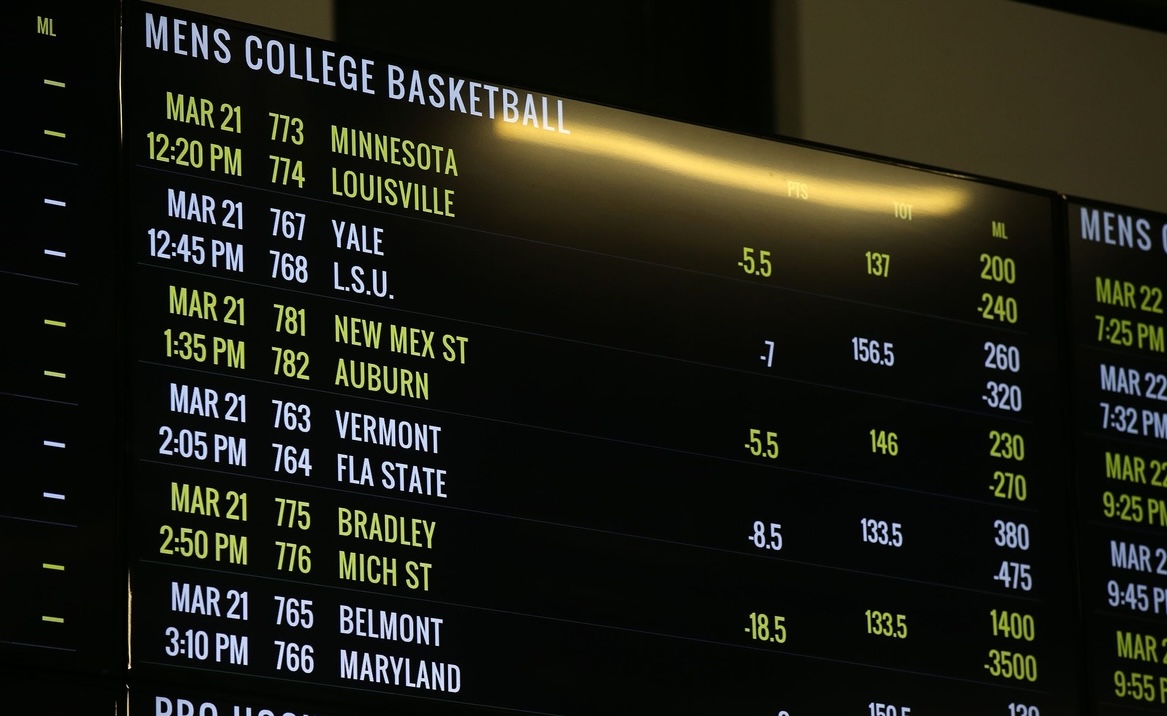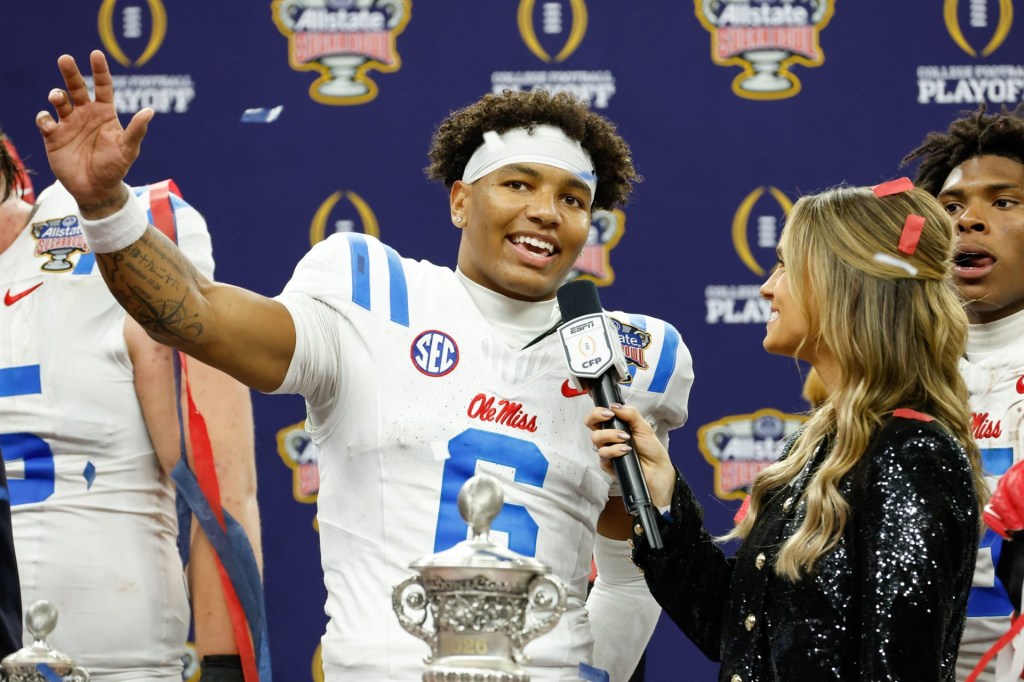Six years ago, the Supreme Court made sports gambling legal, striking down a 1992 federal law that previously banned most states from allowing it. Since then, 38 states have adopted it, leading to an explosion of marketing as professional sports leagues have advertised it to the masses.
On Thursday, three California academics released a paper titled “The Financial Consequences of Legalized Sports Gambling” by Brett Hollenbeck (UCLA), Davide Proserpio, and Poet Larsen (both USC), which studied the negative public health effects of sports gambling. The paper concludes the legalization of sports gambling has negatively impacted financial health, with credit scores dipping slightly and bankruptcies exploding; the authors found that in states with online gambling, “the likelihood of bankruptcy filing increases by as much as 25-30%” four years after legalization.
To learn more about the study, its origin and findings, Front Office Sports caught up with Larsen for a brief phone conversation.
Front Office Sports: What are the origins of the study? What made you go into it?
Poet Larsen: I initially started a project last summer with my colleague Davide, the third author of the paper, and we were originally going to look at how sports gambling was potentially complementing lottery sale tickets. We were collecting data, but we didn’t really see much evidence. … All three of us were interested in the sports gambling context, and we had seen a lot of articles about people being worried about sports gambling’s financial harm, and so we thought this data set could be useful to shed some light on these concerns and try to do rigorous analysis to address the questions being brought up.
FOS: What did you make of what you guys found? Were the findings better or worse from what you were expecting while going through this?
PL: I thought they were, I guess, a bit stronger than I was even expecting. Our data is at the average, looking across all individuals. The concerns about problem gambling are oftentimes considered to be a small proportion of the population. And so for us to be able to pick up fairly strong effects with population data suggests that it’s a pretty strong outcome to be seeing across the board.
FOS: I know you guys didn’t propose solutions in your paper, but if someone with the ability to enact change saw this, what would you want them to take away?
PL: Yeah, it comes down to, we’re a little hesitant to say much outside of what our data talks about, but I think the thing that our paper highlights is online accessibility seems to be exacerbating a lot of the results, particularly for credit scores and bankruptcies.
The states that have online accessibility—that’s where we’re seeing effects. … It depends. We haven’t done any sort of analysis on tax benefits or whatnot with states for revenue, but ultimately all we’re trying to do is just provide a data point for policymakers to help weigh the pluses and minuses for either allowing sports gambling at all or online.
FOS: One of the things I found interesting in the paper is how heavy sports gambling is in young males. Did you guys look at how young the males are getting into it? Were the cases of guys just turning the legal gambling age running into financial trouble?
PL: So in the paper we just do a split around 45. We do under 45 and above 45. We had also looked at particular segments. The strongest segments at least observationally when we were looking at some of the early results were kind of around late 20s or mid-30s, that kind of range. One challenge we have, one kind of limitation is with college students; there’s not as much financial activity with them. I guess they’d be taking out student loans, but at least in our data set, we don’t observe as much. But we see suggested evidence that the late 20s, mid-30s is the category of people that is driving a lot of the effects.
FOS: Sports gambling is still a very new thing in a lot of ways. Could we look back at your paper as a warning sign of sorts?
PL: Yeah, it comes down to the trade-offs for policymakers that they’re willing to make. The conclusion that our paper is reasonably showing with the data is that the introduction of sports gambling—particularly online accessibility—is the thing that’s causing the most amount of financial harm in the average level across consumers and individuals. Whether it’s so terrible for policymakers that they don’t want to introduce sports gambling is kind of up to them. That’s the debate for them to decide. Our paper is trying to provide some frontline early results of what’s going on here.
This interview has been lightly edited for clarity and brevity.








![[Subscription Customers Only] Jun 15, 2025; Seattle, Washington, USA; Botafogo owner John Textor inside the stadium before the match during a group stage match of the 2025 FIFA Club World Cup at Lumen Field.](https://frontofficesports.com/wp-content/uploads/2026/02/USATSI_26465842_168416386_lowres-scaled.jpg?quality=100&w=1024)








